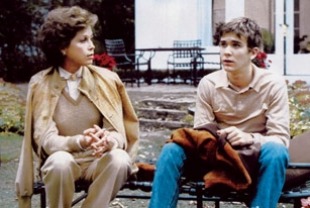This 1980 film won four Academy Awards (Best Picture, Best Director, Best Supporting Actor, and Best Screenplay adapted from Another Medium (the novel by Judith Guest). It is a very special drama about growing up, family life, marriage, love and loss, forgiveness, and renewal. It speaks to experiences, ideas, feelings, and fears common to us all. In the suffering and growth of the ordinary people on the screen, and helps us gain a fresh perspective on our own adolescence and adulthood.
Conrad (Timothy Hutton) is a 17-year-old who has just returned home after four months in a psychiatric hospital following a suicide attempt. His father Calvin (Donald Sutherland), a lawyer, hovers over him with anxious concern. His mother Beth (Mary Tyler Moore), an active woman in their upper-middle-class Lake Forest community, does everything she can to avoid any close contact with him. At school, Conrad is a member of the choir and on the swimming team.
The trauma that has deeply affected the whole family is the accidental death of the older son, Buck, in a boating accident that Conrad survived. Calvin encourages his son to see a psychiatrist, and the boy warily begins twice-a-week sessions with Dr. Berger (Judd Hirsch). Conrad announces he wants more "control" of his life; the psychiatrist soon zeroes in on his family situation. Meanwhile Calvin and Beth's marriage begins to disintegrate; he finds her treatment of Conrad to be too chilly, and she blames him for always siding with their son against her.
Conrad's progress is suddenly reversed when Karen (Dinah Manoff), a friend from the hospital whom he has seen once since their release, commits suicide. Dr. Berger is there when his patient needs him, and he helps Conrad focus on the real source of his problem. A blooming relationship with Jeannine (Elizabeth McGovern) gives Conrad a new measure of self-confidence. In the end, Beth leaves for an indefinite period of time after both she and Calvin realize that the love has gone out of their marriage.
Ordinary People is a film that works on several levels. It is a sensitive portrait of a young man struggling to regain his equilibrium after caving in to grief and guilt following his brother's death. The story also works as an incisive portrait of a hurting family — one in which surface calm conceals a real lack of communication, self-esteem, and mutual understanding. Finally, the drama presents an edifying example of humanistic psychology at its best.
This film was Robert Redford's first directorial effort. He talked about what he hoped audiences would take away from the film: "Ordinary People has lots of colors. It is a picture of behavior, about something of depth. It has to do with the family unit, which interests me. And with people who keep their lives in perfect order — they interest me. It's about the effort to communicate by a young person through the fog of social structures he's raised in. I don't know what this picture will say to teenagers but I hope it has a message for their parents. I hope it tells them loud and clear to listen to what their children have to say."
